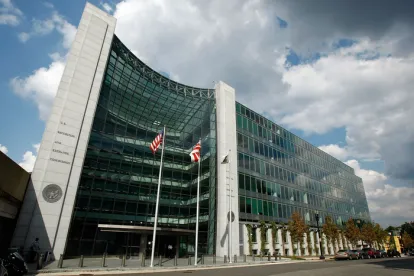As we described several weeks ago, the SEC across the agency is going to be vigilant in its efforts to regulate, examine and enforce the federal securities laws regarding coronavirus/COVID-19. More recently, the SEC Division of Enforcement (“SEC Enforcement”) has stepped to the forefront of these efforts.
SEC Enforcement Initiative, and SEC Investment Management and FINRA Guidance
Last week, SEC Enforcement appeared to initiate a “sweep” of public companies that borrowed money under the Paycheck Protection Program (“PPP”) —the $669 billion SBA forgivable loan program established by the CARES Act. Specifically, SEC Enforcement is sending voluntary inquiries requesting information regarding the companies’ eligibility to receive PPP loans, including COVID-19’s impact on the business. Eligibility for a PPP loan is based in part on certifying in good faith that “[c]urrent economic uncertainty makes th[e] loan request necessary to support the ongoing operations of the Applicant.” Importantly, the Small Business Administration (SBA) has recently published FAQ guidance creating a safe harbor regarding the evaluation of this certification. In Question 46, the guidance states that “[a]ny borrower that, together with its affiliates, received PPP loans with an original principal amount of less than $2 million will be deemed to have made the required certification concerning the necessity of the loan request in good faith.” Apart from PPP eligibility issues, SEC Enforcement presumably will review the companies’ MD&A and risk factor disclosures concerning COVID-19’s impact on their business operations and financial condition.
SEC Enforcement’s PPP loan investigation appears to be focused on public companies, but the SEC is also monitoring registrants who received PPP loans. The agency’s Division of Investment Management recently updated FAQ guidance stating in Question II.4 that registered investment advisors taking PPP loans should consider whether such loans require disclosure in amendments to Forms ADV if the circumstances leading to seeking a PPP loan or other financial assistance “constitute material facts relating to [the] advisory relationship with clients.” The SEC does not specify what constitutes “material” in this context. However, the guidance states that “[i]f for instance, you require such assistance to pay the salaries of your employees who are primarily responsible for performing advisory functions for your clients, it is the staff’s view that you would need to disclose this fact.” The guidance further notes that “[i]f your firm is experiencing conditions that are reasonably likely to impair its ability to meet contractual commitments to its clients, you may be required to disclose this financial condition.” Faegre Drinker previously covered this FAQ guidance in greater detail.
Regarding broker-dealers, FINRA previously addressed its member’s obligations regarding PPP loans in FAQ guidance. These FAQs asked, “[i]f a registered person or a business they control obtains a PPP loan and the loan or part of the loan is forgiven, will the registered person be required to report that forgiveness in response to Question 14K on their Form U4 as a ‘compromise with a creditor?’” FINRA responded: “No, provided the PPP loan or part of the loan is forgiven consistent with the original terms.”
The SEC’s broad position on disclosure, and even FINRA’s more narrow guidance, is causing vexation within the industry as it is perceived as running counter to the purpose of a PPP loan, which assists registrants to stay in business, thus furthering—not impairing—their ability to meet their commitments to clients. Some observers have noted that the SEC’s position has prompted worries that disclosure will constitute a form of “PPP shaming.” Nevertheless, investment advisors should follow the SEC’s guidance on disclosure.
SEC Enforcement Announces Coronavirus Steering Committee Priorities
On May 12, 2020, Steven Peikin, Co-Director of SEC Enforcement, delivered a speech outlining the priorities of the SEC Enforcement’s Coronavirus Steering Committee, which is tasked with coordinating SEC Enforcement’s response to coronavirus-related enforcement issues. The priorities include:
-
The escalation of microcap fraud related to specious claims of treatments or pandemic-related capabilities;
- Insider trading and market manipulation associated with increased volatility and a steady stream of market-moving announcements by issuers;
- Corporate disclosure and accounting fraud, particularly in highly impacted industries—either from the financial stresses of the current downturn exposing pre-existing accounting or disclosure improprieties or from issuers making improper disclosures, impairments, or valuations related to the effects of the current pandemic;
- Investment advisor and investment company misconduct, such as failure to honor redemption requests indicating underlying issues, or improper marketing and sale of complex-structured products to retail investors.
Given SEC Enforcement’s heightened vigilance and the numerous economic risks posed by the COVID-19 pandemic crisis, companies and firms should assess and continue to monitor the novel risks presented, their policies, procedures, and controls, and their disclosures to clients. If warranted, companies and firms should consult with experienced counsel to obtain assistance regarding strategically maneuvering through this complicated and unforeseen regulatory environment.





 />i
/>i
